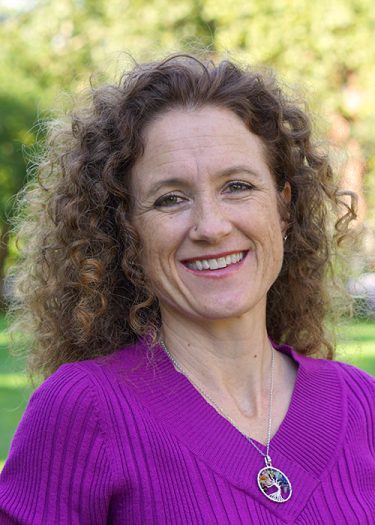Educators offer strategies for implementing weight-inclusive approach in dietetics training
A new paper published in the Journal of Nutrition Education and Behavior, co-authored by University of Washington School of Public Health faculty member Cristen L. Harris, offers practical strategies for program directors and educators to use as a framework for incorporating weight-inclusive approaches into their dietetics education programs.
These recommendations follow another paper Harris co-authored in August 2024 which presents the case for moving away from a weight-centric model in dietetics, an approach which can perpetuate weight stigma, and is associated with poorer health behaviors, poorer mental health, disordered eating, and even increased mortality risk.
What is a weight-inclusive approach?
A weight-inclusive perspective in health care focuses on objective health markers and behaviors, taking the focus off of weight. It creates an environment that allows individuals of any weight to access health and wellness without stigmatization. A weight-inclusive perspective includes the assertions that body weight diversity is natural and acceptable, healthfulness can exist regardless of body weight, and social determinants of health impact wellness above and beyond these biometrics.
From: Weight-Inclusive Approaches to Nutrition and Dietetics: A Needed Paradigm Shift
In the new paper, Harris and her collaborators aim to demonstrate how educators can meet knowledge and competency requirements embedded throughout coursework in nationally accredited nutrition and dietetics programs using a variety of weight-inclusive concepts and learning activities.
Some of the practical strategies featured in the paper include:

- Integrating diverse patient case studies that reflect various body sizes, cultural backgrounds, and lived experiences.
- Adopting size-inclusive language in educational materials and clinical simulations to reduce bias and promote respect.
- Encouraging critical reflection among students regarding societal and systemic influences on body image, health access, and nutritional outcomes.
- Offering experiential learning through placements with professionals who already practice using weight-inclusive care models.
Educators are in need of a framework to implement these changes.
Harris has been an advocate for incorporating weight-inclusive topics and learning activities at UW for many years.
In 2021, Harris worked collaboratively with Michelle Averill, director of the Food Systems, Nutrition, and Health program and associate director of the Graduate Coordinated Program in Dietetics (GCPD), to begin an informal peer advising group where students and faculty openly discussed how to address the prevalence of weight stigma in their field. Read more about the success of this initiative.
“The existing weight-centered paradigm is ubiquitous throughout healthcare and public health — and, unfortunately, often considered as being synonymous with nutritional care,” said Harris.
“If students leave an educational program knowing how to apply weight-inclusive care as an alternative to weight-centric care, then they are better equipped to provide truly individualized treatment that aligns with patients’ needs, particularly when those needs involve experiencing healthcare that is free from anti-fat stigma.”
Harris also teaches NUTR 415/515 Body Weight and Size Inclusivity: Clinical, Behavioral, and Societal Perspectives which is offered in winter quarter and often fills quickly due to popularity with students.
“Students in our GCPD program are challenged with how to address or utilize size-inclusive or weight-neutral approaches in a weight-normative medical or public health framework that is traditionally focused on reducing obesity,” said Averill. “Embracing these conversations with our students and among our faculty members is a core value we have at UW.”
Harris collaborated on these recommendations with colleagues affiliated with dietetics programs across the United States, and like Harris, each individual has been engaged in other initiatives around this topic such as developing a weight-inclusive educators’ toolkit complete with presentations, discussion prompts, case studies, test questions, learning activities, and instructor’s guides.
“With this paper, we hope to provide dietetic educators with concrete examples of how to incorporate weight-inclusive approaches in their curriculum so that students can have more resources to provide inclusive, patient-centered care, which is a directive of our accrediting body,” said Harris.
Harris shares that these additional resources will be available to educators in the not-too-distant future.
To read the full article, visit ScienceDirect.
Cristen L. Harris is a teaching professor in the Department of Epidemiology in the UW School of Public Health, and a core faculty member in the Food Systems, Nutrition, and Health program.
Co-authors of the paper:
- Dawn Clifford – Department of Health Sciences, Northern Arizona University
- Emma Laing – Department of Nutritional Sciences, University of Georgia
- Nicholas Slagel – Department of Kinesiology, Nutrition, and Dietetics, University of Northern Colorado
- Jordan Levinson – Post-Doctoral Research Associate, Department of Nutrition and Food Sciences, University of Vermont
- Nikole Decker Squires – Department of Health Sciences, Northern Arizona University
- Jeffrey Hunger – Department of Psychology, Miami University
May 7, 2025